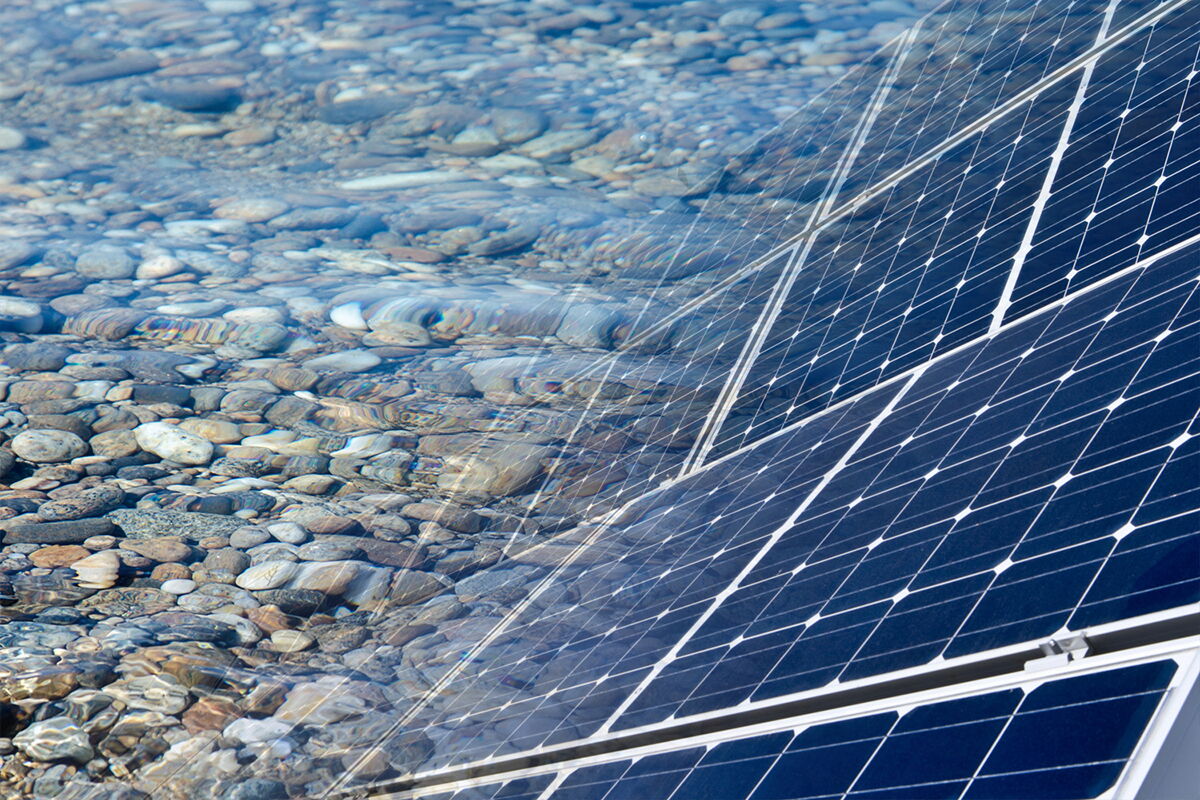2.7 million euros for cross-border research

The European Union is funding two projects in sustainability research on the European Campus.
The Monitoring Committee of the European INTERREG program has approved two cross-border applications from universities in the Upper Rhine region. The three-year projects in the fields of hydrology and renewable energy are managed by the University of Freiburg and strengthen the focus of Eucor – The European Campus in its sustainability research. A total of 2.7 million euros from the European Regional Development Fund (ERDF) will flow to the project partners.
NAVEBGO: A strategy for the sustainable reduction of biocide input into groundwater in the Upper Rhine region
Biocides are used for building facades to protect against algae and fungal attack, enter the urban water cycle and finally into the groundwater. In the NAVEBGO project, scientists are developing proposals on how this biocide input can be sustainably reduced in the Upper Rhine region. Structural precautions counter algae and fungal attack without the use of biocides and are therefore relevant for architects right from the building planning stage. “In addition to new research results, we also want to achieve changes on the practical level. We will therefore test alternative products for ecotoxicological safety and recommend them to builders and DIY enthusiasts,” says project manager Prof. Dr. Jens Lange. “We will also identify the most important routes for biocides to enter groundwater and then develop proposals for municipal administrations on how they can contribute to reducing biocide inputs.” The project results can be applied to all settlement areas on the Upper Rhine and are visualized and communicated via an online platform using digital maps. In addition to the Eucor universities of Freiburg and Strasbourg, the universities of Koblenz-Landau and Lüneburg as well as the private corporation WWL Environmental Planning and Geoinformatics (WWL Umweltplanung und Geoinformatik GbR) from Bad Krozingen are involved. The EU’s funding amount is 1.12 million euros. The project started at the beginning of the year.
RES_TMO: Regional concepts for an integrated, efficient and sustainable energy supply and storage in the Upper Rhine trinational metropolitan region
The switch to renewable energy sources (RES) is regarded worldwide as a prerequisite for meeting climate policy goals. However, the planned phase-out of nuclear and coal-fired power plants and the high proportion of renewable energies produced in the Upper Rhine Trinational Metropolitan Region (TMO) pose challenges, particularly in terms of energy supply and system flexibility. “In order to guarantee the security of the renewable energy supply, the French, German and Swiss actors in the border region on the Upper Rhine must coordinate their energy systems,” says project manager Prof. Dr. Barbara Koch. “We would like to develop recommendations for action for decision-makers so that the existing capacities in generation, demand and storage can be used reciprocally.” All five Eucor universities –Basel, Freiburg, Haute-Alsace, Strasbourg and the Karlsruhe Institute of Technology – are involved in the project. Other project partners are the energy supplier badenova and the Strasbourg site of the French national research center CNRS. The project development was supported by Eucor – The European Campus with start-up financing “seed money”. The EU is funding the project, which will start in February 2019, with 1.59 million euros.